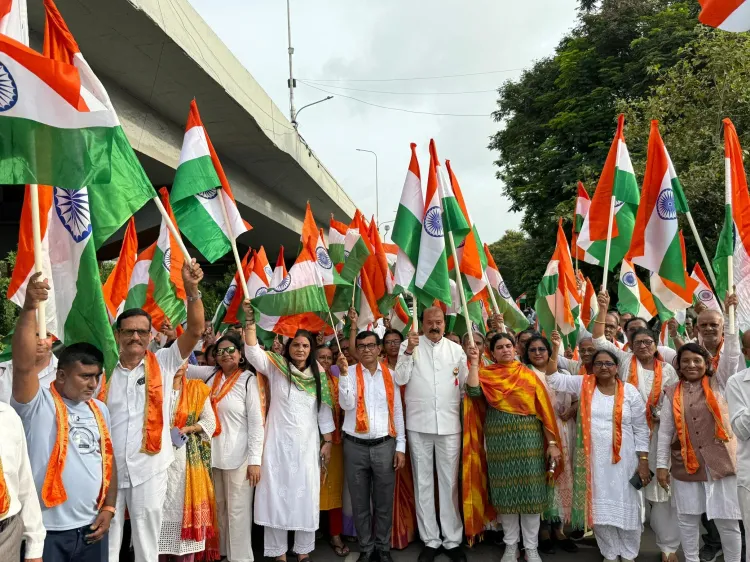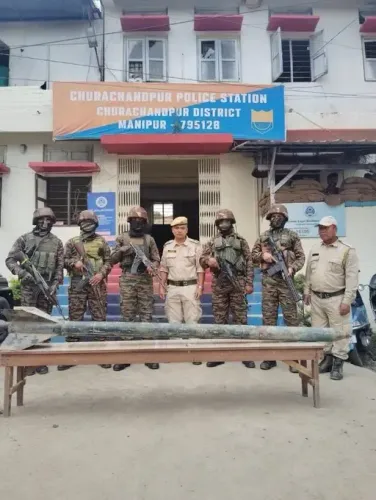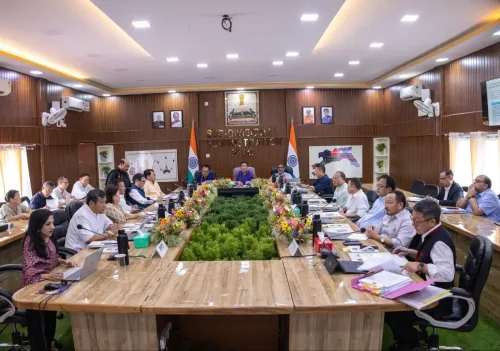Why Was Gujarat’s ‘Pakistan Mohalla’ Renamed ‘Hindustani Mohalla’?

Synopsis
Key Takeaways
- ‘Pakistan Mohalla’ has been officially renamed to ‘Hindustani Mohalla’.
- The renaming aims to foster unity and belonging among residents.
- Special assistance will be provided for updating official documents.
- Aadhaar update camps are scheduled for August 17 and 24.
- Surat has significant historical importance as a trade hub.
Surat, Aug 15 (NationPress) On Independence Day, the area previously known as ‘Pakistan Mohalla’ in Ramnagar, Gujarat, has been officially renamed ‘Hindustani Mohalla’.
The new sign was unveiled by BJP Surat West MLA Purnesh Modi in the presence of local community members. The term ‘Pakistan Mohalla’ was an unofficial designation for a section of Ramnagar in Surat’s Rander area, which developed after the Partition of India in 1947.
At that time, many Sindhi Hindu refugees migrated from Sindh (now in Pakistan) to India, with a significant number establishing their homes in Surat. The Ramnagar colony, which consists of approximately 600 houses, became one such settlement.
Over the years, a segment of this colony was informally referred to as ‘Pakistan Mohalla’—a name that, despite its roots in migration history, carried various political and emotional implications.
While this name persisted for many years, earlier attempts to provide the area with a new identity were made. One notable effort involved renaming an internal junction to Hemu Kalani Chowk, honoring the Sindhi freedom fighter.
However, such changes did not achieve widespread acceptance. MLA Modi stated that the renaming signifies a new identity for the neighborhood and encouraged residents to update their official records accordingly.
Special assistance will be available to change the name on Aadhaar cards, voter IDs, ration cards, and other documents that still reflect the old designation.
To aid in this process, Aadhaar update camps are scheduled for August 17 and August 24, from 10:00 a.m. to 3:00 p.m., at the Seva Setu-Loan Mela program at Navyug College Campus on Rander Road.
Local residents have embraced this change, viewing it as a step towards fostering a renewed sense of belonging and unity.
Additionally, Surat, often referred to as the “Gateway to the West,” holds considerable historical importance as one of India’s oldest and most affluent port cities.
Thriving under the Mughals during the 16th and 17th centuries, it emerged as a crucial center for trade in silk, cotton, and spices, attracting merchants from Europe, Arabia, Africa, and Southeast Asia.
The British and Dutch East India Companies established their first Indian trading factories here, making Surat an essential hub in global commerce.









